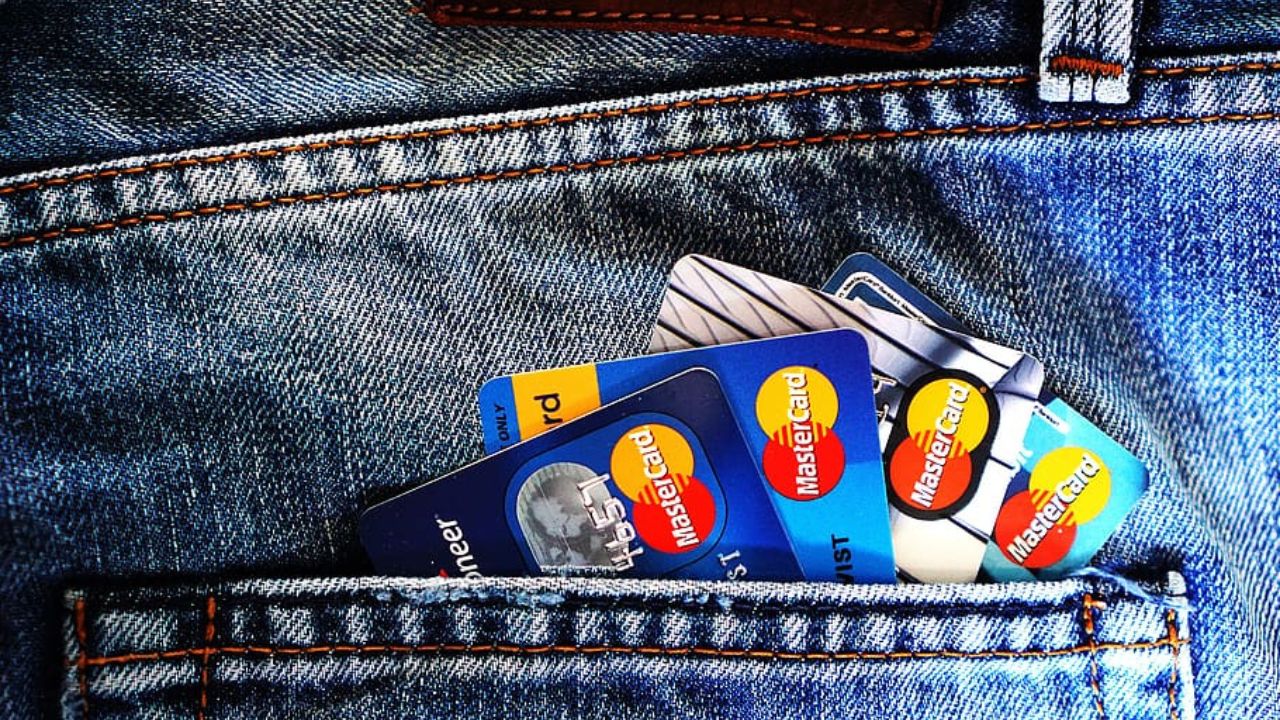What Is COTFLT Charge On Credit Card? A “COTFLT” charge on a credit card typically refers to a fee related to a flight or travel-related transaction, often from a travel service provider or airline.
Credit card statements can sometimes be full of unfamiliar charges, leading to confusion and concern. One such charge that many cardholders come across is the “COTFLT” charge. If you’ve recently seen this charge on your credit card statement and wondered what it means, you’re not alone.
In this comprehensive article, we will explore everything you need to know about the COTFLT charge: what it is, why it appears, how to identify it on your credit card statement, and what steps to take if you encounter it.
Contents
- 1 What Is a COTFLT Charge?
- 2 Why Does a COTFLT Charge Appear on Your Credit Card?
- 3 How to Identify a COTFLT Charge on Your Credit Card Statement?
- 4 What to Do if You Find a COTFLT Charge You Don’t Recognize?
- 5 How to Resolve or Dispute a COTFLT Charge?
- 6 Are COTFLT Charges Common?
- 7 FAQs
- 8 Conclusion: What Is COTFLT Charge On Credit Card?
What Is a COTFLT Charge?
Definition and Explanation
A COTFLT charge on your credit card typically refers to a fee related to air travel or flight bookings. The term “COTFLT” is an abbreviation for “Cost of Flight”, and it is most commonly associated with airlines, travel agencies, or flight booking platforms.
When you purchase a flight ticket or book a flight through a third-party service, the platform or airline might charge you a fee that gets reflected on your credit card as a COTFLT charge.
In simple terms, if you have booked a flight, whether it’s through a direct airline website, a travel agency, or a third-party platform, this charge represents the cost of the flight. [What Is COTFLT Charge On Credit Card?]
This charge helps the airline or travel agency cover the costs related to booking, processing, or maintaining their flight reservation system. It’s an operational fee related to air travel transactions.
When Do COTFLT Charges Appear?
COTFLT charges appear on your credit card statement after you make a flight reservation or purchase related to air travel. Typically, these charges follow after booking a flight, reserving a hotel package that includes a flight, or making any travel-related transactions through an airline or booking platform.
If you’ve recently bought flight tickets, booked travel services online, or used a travel agency, it’s highly likely that the charge you see labeled “COTFLT” is tied to your flight booking process.
In some cases, this charge might appear if you have used a third-party service to compare flight prices or book a package deal that involves air travel. [What Is COTFLT Charge On Credit Card?]
Why Does a COTFLT Charge Appear on Your Credit Card?
Common Reasons for the Charge
The COTFLT charge appears for several reasons, most of which are tied to the operational costs involved in booking flights or arranging travel services. [What Is COTFLT Charge On Credit Card?]
Airlines, travel agencies, and booking platforms often charge a fee called the “Cost of Flight” to cover the overheads related to flight reservations.
Airlines generally charge this fee to cover the administrative and technological infrastructure required to facilitate flight bookings, payment processing, and customer support.
Similarly, travel agencies or third-party booking platforms may impose a COTFLT charge as part of their business model to cover the cost of providing additional services, such as helping you find the best flight deals, offering travel advice, or handling cancellations and changes.
Even when booking flights through third-party platforms like Expedia, Orbitz, or Skyscanner, a COTFLT charge may be included in your final payment to cover the booking service provided by the platform.
Who Imposes the COTFLT Charge?
Several players in the travel industry impose the COTFLT charge, primarily airlines and online travel agencies (OTAs). Airlines charge these fees to cover their flight booking systems, customer service, and booking infrastructure.
For example, when you book a flight directly with an airline such as Delta, American Airlines, or United, the COTFLT fee may appear to cover the airline’s reservation system. [What Is COTFLT Charge On Credit Card?]
On the other hand, if you use an online travel agency or booking platform like Expedia, Orbitz, Priceline, or Kayak to make flight reservations, these platforms will typically add the COTFLT fee as part of the transaction.
This fee compensates them for the convenience of comparing prices across airlines and providing customer service for the booking process.
Travel agencies also charge this fee to handle their operational costs, including access to flight data, customer service support, and transaction processing.
Though the COTFLT charge is most commonly associated with airlines and travel booking platforms, it can also appear when booking packages that involve air travel, such as vacation deals that combine flights and hotel stays.
How to Identify a COTFLT Charge on Your Credit Card Statement?
Appearance on Statements
When you go through your credit card statement and notice the COTFLT charge, you might wonder how to recognize it. [What Is COTFLT Charge On Credit Card?]
These charges typically appear on your statement as “COTFLT” or “Flight Booking.” Depending on your credit card issuer and the airline or travel service provider, the description might vary slightly.
Here’s what you should look for when identifying a COTFLT charge:
- Charge Description: The term “COTFLT” will likely be listed next to the cost of your flight or travel booking. The charge description might also mention the airline, travel platform, or agency responsible for the transaction.
- Amount: The fee could be a small percentage of the total cost of the flight, or it could be a flat fee. It’s common for the cost of the flight to be broken down into several categories, including the base fare, taxes, and additional service fees such as COTFLT.
- Date and Time: The charge will appear on your statement soon after booking your flight or travel service. Be sure to check the date when the transaction was made to ensure it aligns with your flight booking date. [What Is COTFLT Charge On Credit Card?]
In many cases, credit card issuers and merchants try to keep the charge labels clear to avoid confusion. However, if you’re still unsure about a specific charge, don’t hesitate to reach out to your credit card issuer or the merchant for more details.
Legitimate vs. Fraudulent Charges
It’s essential to distinguish between a legitimate COTFLT charge and a potentially fraudulent one. If you see a COTFLT charge on your statement but don’t remember booking a flight or making a travel-related purchase, it’s important to investigate further.

What to Do if You Find a COTFLT Charge You Don’t Recognize?
First, check your recent travel history, including flight bookings, hotel reservations, or any travel packages. It’s possible that you made a booking and forgot about it or that someone in your family used your card for the purchase.
If, after checking, you find no legitimate reason for the charge, or if the amount doesn’t match your expectations, you should contact the merchant or airline directly. [What Is COTFLT Charge On Credit Card?]
You may have made a mistake when booking, or you might be facing a fraudulent transaction. If you suspect fraud, you should immediately contact your credit card issuer to dispute the charge.
Many credit card companies have fraud protection programs that allow you to report unauthorized charges. These programs may include investigating the charge and providing you with a temporary credit until the situation is resolved. If necessary, the credit card issuer will help you initiate a chargeback.
How to Resolve or Dispute a COTFLT Charge?
Steps for Resolution
If you’re sure that the COTFLT charge is legitimate and you want to resolve any confusion, the first thing you should do is check your flight or travel booking confirmation.
Look for any details regarding service fees, such as booking or transaction fees, that might have been applied by the airline or travel agency. If you booked through a third-party service, double-check your receipt to confirm that it includes the COTFLT charge.
If you’re unable to locate any information related to the COTFLT fee in your travel documents, the next step is to reach out to the merchant or the airline. Most companies have dedicated customer service teams that can verify if you were charged a legitimate fee and help clarify any misunderstandings.
Disputing Fraudulent Charges
If you suspect that a COTFLT charge is fraudulent or that it was made in error, here’s how you can dispute the charge:
- Contact Your Credit Card Issuer: Notify your credit card issuer about the suspicious charge. Most credit card companies have fraud protection services in place to assist you with resolving unauthorized transactions. You can file a claim or dispute the charge directly with your issuer.
- Request a Chargeback: If the charge is found to be fraudulent, your credit card company will initiate a chargeback process to reverse the transaction. [What Is COTFLT Charge On Credit Card?]
- Monitor Your Account: After reporting the fraudulent charge, continue to monitor your account for any further suspicious activity. You may also want to update your credit card details for added security.
It’s essential to act quickly when disputing a fraudulent COTFLT charge. Most credit card companies have time limits for reporting fraud, so be sure to review your statement regularly and take action if you notice something unusual.
See Also: Can I Use My American Airlines Credit for Someone Else?
Are COTFLT Charges Common?
Frequency of COTFLT Charges
COTFLT charges are relatively common, especially for individuals who book flights or make travel-related purchases regularly. Whether you’re traveling for business, leisure, or family vacations, there’s a good chance you’ll encounter this charge when booking flights.
Since airlines, travel agencies, and booking platforms routinely apply this fee, frequent travelers will likely see the COTFLT charge on their credit card statements.
Who Typically Uses COTFLT Charges?
As mentioned earlier, airlines and online travel agencies (OTAs) are the most common entities to charge the COTFLT fee. Major airlines like Delta, American Airlines, United, and Southwest impose this fee to cover the costs associated with flight bookings. [What Is COTFLT Charge On Credit Card?]
Likewise, third-party platforms such as Expedia, Orbitz, Priceline, and Skyscanner often charge this fee when you book flights through their services. These platforms typically add the COTFLT charge as part of the transaction to cover their operational costs, including customer support, booking infrastructure, and processing fees.
FAQs
1. What does COTFLT stand for on a credit card statement?
COTFLT stands for “Cost of Flight” and refers to a fee associated with flight bookings or air travel services.
2. How do I avoid unexpected COTFLT charges?
To avoid unexpected COTFLT charges, carefully review all flight bookings and confirm the total cost before finalizing any transaction. Always check for any additional fees that may be included in the final price.
3. Can a COTFLT charge be refunded?
Yes, in most cases, a COTFLT charge can be refunded if you cancel the flight or travel booking within the allowed time frame. Be sure to check the airline or travel agency’s refund policy for details.
While COTFLT is primarily associated with flight bookings, it can also apply to other travel-related services such as vacation packages or hotel bookings that include flights. [What Is COTFLT Charge On Credit Card?]
5. Can I prevent these charges from appearing on my statement?
You can avoid unexpected COTFLT charges by regularly reviewing your travel bookings and statements. If you don’t want to incur such charges, consider booking directly with airlines or platforms that provide clear breakdowns of all fees before confirming your purchase.
Conclusion: What Is COTFLT Charge On Credit Card?
Understanding COTFLT charges is essential for managing your credit card and travel expenses. While these charges are usually associated with flight bookings, they can sometimes appear as part of a broader travel-related transaction.
By staying vigilant, reviewing your credit card statements regularly, and understanding the types of fees applied by airlines and travel agencies, you can better navigate your credit card charges and avoid any unwanted surprises.
If you ever encounter an unfamiliar COTFLT charge, follow the steps outlined in this article to investigate its legitimacy and resolve any issues quickly. [What Is COTFLT Charge On Credit Card?]

Xzavier McGuire is a finance expert, blogger, and author from New York. He recently graduated in finance and writes about loans, credit cards, and money management. Xzavier helps people understand finance and make smart financial decisions.

